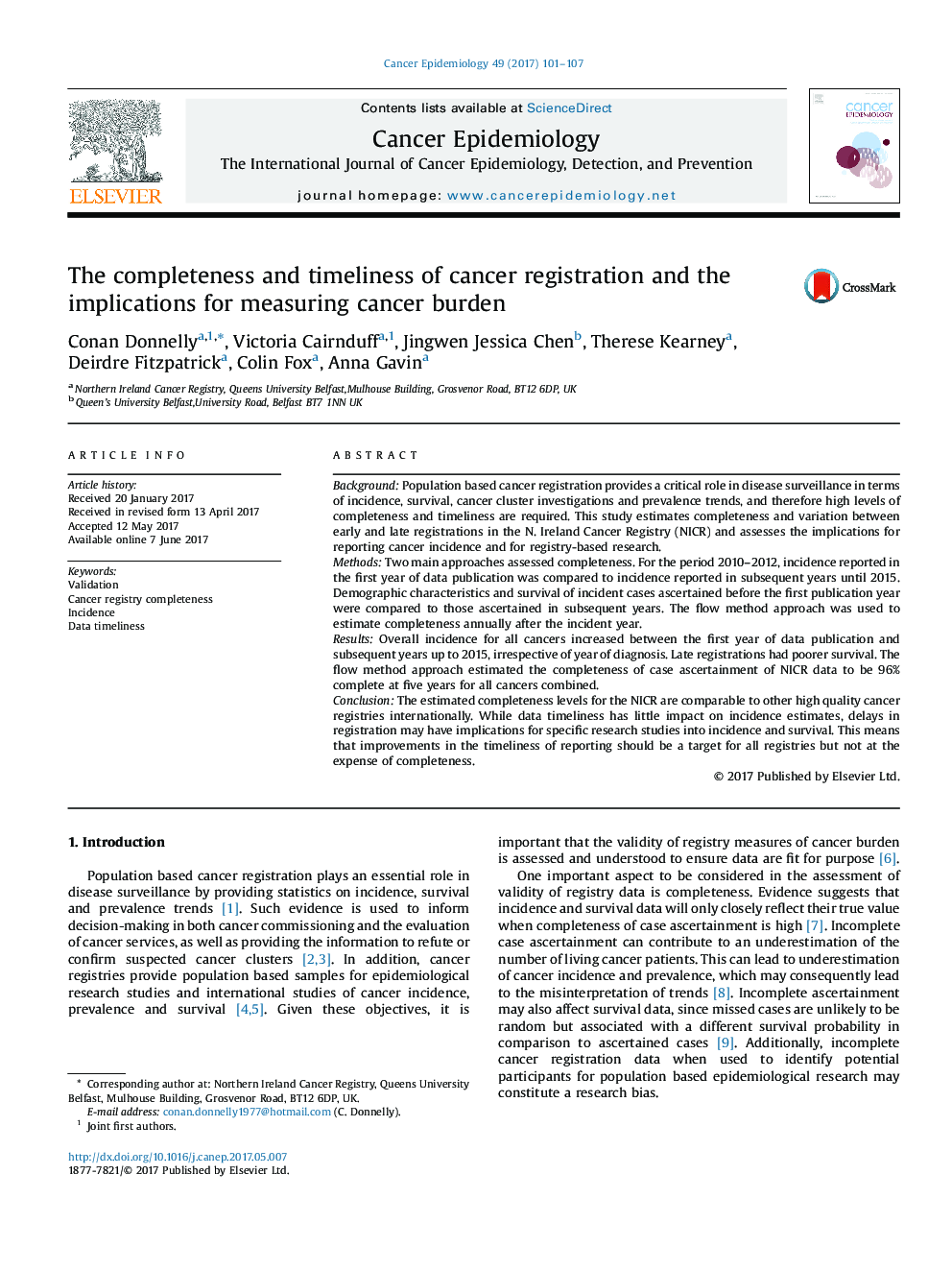| Article ID | Journal | Published Year | Pages | File Type |
|---|---|---|---|---|
| 5524775 | Cancer Epidemiology | 2017 | 7 Pages |
â¢Cancer registry completeness was assessed over time and the importance of assessing bias in less mature data is highlighted.â¢While cancer registry completeness is high, later ascertained cases had poorer survival, older age and later disease stage.â¢User awareness of the implications of pursuing more timely publication on data completeness and associated bias is required.â¢Best use of electronic healthcare data may allow accelerated publication of registry data without impairing completeness.
BackgroundPopulation based cancer registration provides a critical role in disease surveillance in terms of incidence, survival, cancer cluster investigations and prevalence trends, and therefore high levels of completeness and timeliness are required. This study estimates completeness and variation between early and late registrations in the N. Ireland Cancer Registry (NICR) and assesses the implications for reporting cancer incidence and for registry-based research.MethodsTwo main approaches assessed completeness. For the period 2010-2012, incidence reported in the first year of data publication was compared to incidence reported in subsequent years until 2015. Demographic characteristics and survival of incident cases ascertained before the first publication year were compared to those ascertained in subsequent years. The flow method approach was used to estimate completeness annually after the incident year.ResultsOverall incidence for all cancers increased between the first year of data publication and subsequent years up to 2015, irrespective of year of diagnosis. Late registrations had poorer survival. The flow method approach estimated the completeness of case ascertainment of NICR data to be 96% complete at five years for all cancers combined.ConclusionThe estimated completeness levels for the NICR are comparable to other high quality cancer registries internationally. While data timeliness has little impact on incidence estimates, delays in registration may have implications for specific research studies into incidence and survival. This means that improvements in the timeliness of reporting should be a target for all registries but not at the expense of completeness.
